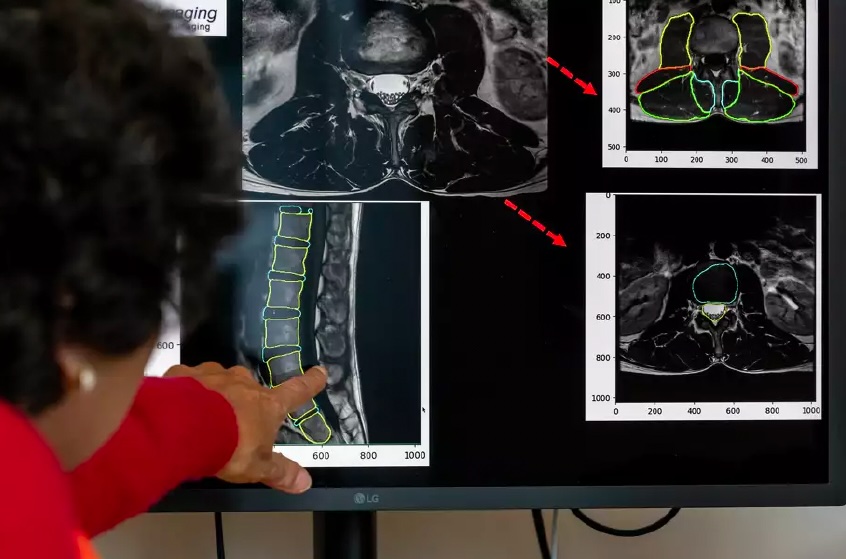UCSF's Center for Intelligent Imaging (ci2)'s Sharmila Majumdar, PhD, and Cynthia Chin, MD, spoke with the San Francisco Chronicle to share their team's research on an artificial intelligence program that aids MRI decision-making.
With nearly a quarter of adults experiencing lower pain pain in their lives, it presents a problem for doctors when that pain is opaque. "For something like 90% of people worldwide, the pain is nonspecific, meaning doctors have a hard time tracking it to a particular treatable pathology," says the San Francisco Chronicle. The untraceable source of pain can lead to overprescription of opioids for pain management.
Drs. Majumdar and Chin's Back Pain Consortium, or BACPAC, is part of a greater initiative funded by the National Institutes of Health to fight opioid addiction.
By utilizing artificial intelligence in the process, the BACPAC can more clearly identify the areas of pain. Using MRIs of the lower back in conjunction with brain imaging of the connected pain sensations, Drs. Majumdar, Chin and their team at UCSF Department of Radiology and Biomedical Imaging apply the AI algorithm to color-code pain points that would be more difficult to identify with the naked eye.
"The [AI] program applies different lenses to different parts of the back, looking for potential issues such as the height and hydration of disks, assigning them colors from bluish green to alarming reddish yellow depending on their state of desiccation," says Drs. Majumdar and Chin to the San Francisco Chronicle.
As good as the technology is, it is still experimental. However, Dr. Majumdar says, "I feel our algorithms could be in the clinic and ready for decision support right now."
Read more about research and news at UCSF ci2.




